![]()
Main Menu ·
Search ·
Current Issue · Contact · Archives · Centennial · Letters to the Editor · FAQs
![]()
Main Menu ·
Search ·
Current Issue · Contact · Archives · Centennial · Letters to the Editor · FAQs

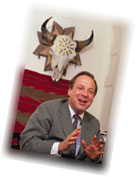 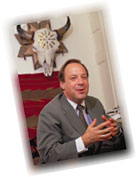 
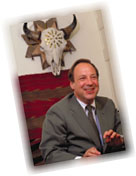 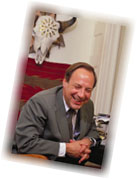 |
The "Report on the Structure of Harvard College," prepared by a committee cochaired by Harry R. Lewis '68, Ph.D. '74, was released in August 1994. The following February, Lewis, Gordon McKay professor of computer science, was named dean of the College--only the second tenured member of the teaching faculty to serve as dean since 1947, and the first since the early 1970s. He still teaches the undergraduate course Computer Science 121, "Introduction to Formal Systems and Computation," an activity he calls his favorite three hours of the week. Lewis met with editors of Harvard Magazine at his University Hall office on July 1, the fourth anniversary of the date he assumed the deanship, to discuss the condition of the College and his priorities for the future.
Harvard Magazine: What were the major challenges and needs your committee identified in the report on the structure of the College, and where do you think you have been able to take the most significant action?
Harry Lewis: We were really reviewing the structure of the College administration, because there hadn't been much attention to it during the postwar period. What originally motivated Jeremy [Knowles, dean of the Faculty of Arts and Sciences] to ask for the review was a feeling that the academic and nonacademic sides of undergraduate life were operating more and more like parallel universes. By having one tenured member of the faculty--me--as dean of Harvard College and another tenured member of the faculty--[professor of English and American literature and language] Larry Buell at the time, [Reisinger professor of Slavic languages and literatures] Bill Todd now--as dean of undergraduate education, there has been some resolution of one of the questions that motivated the report in the first place: about having an academic hand guiding College affairs. That worked out almost by accident through my coming into the position, without any larger, structural change to the relationship between the College administration and other parts of the educational structure here.
One of the things the report talks about, which I've tried to work on, is the health of the House system. I'm quite happy about what's been happening in the Houses over the past four years, for several reasons.
First, I think the change in the House assignment system--distributing the students in a more uniform way across the 12 residential Houses--is consistent with the original purpose of the system, and has largely been a success.
Second, I'm very happy about the masters. Five masters have been appointed in the past four years, and they are all outstanding. They were replacing some very venerable figures, but the newcomers are very, very committed to undergraduate life, to the success of their own Houses, to the success of the House system--and they still carry tremendous academic loads.
The third piece is the senior tutors. Ten years ago there were a lot of graduate students who were acting senior tutors for a year. There was a lot of turnover. And the pool of candidates with the academic qualifications to be faculty members was not very deep. We were able to get some funding so that a desirable senior-tutor candidate who happened to be in an academic field where there wasn't an open half-time teaching position could be hired anyway, without affecting the department's staff budget. That opened up the pool of candidates, so we've got a very strong, stable group of senior tutors now.
HM: One implication of the committee's report was that, because graduate students filled the positions, the College had a less worldly, less experienced group of senior tutors--and that carried over to the Administrative Board, on which senior tutors serve. Has the reconstitution of senior-tutor ranks made a difference in how the Ad Board is working, particularly as disciplinary cases become more complex and contested?
Lewis: Yes. The senior tutors now are a very solid group of people--thoughtful, reflective, and experienced. They're administratively competent as well as educationally sensitive. The quality of discussion and analysis is high, and the board, which is a faculty subcommittee, again consists mostly of teaching members of the faculty. That is not only because of the senior tutors, but also because for the last three years we've had two tenured members of the faculty, in addition to myself, acting as at-large members of the Ad Board.
HM: The report indicated that the nature of the cases the Ad Board hears has grown tougher, with more reported "peer-against-peer" instances of harassment and assault.
Lewis: Everything that used to happen still happens. But cases get very complicated because of interactions with the mental-health system and the legal system. People call lawyers at the drop of a hat now. It's a general societal phenomenon, nothing peculiar to Harvard. And so these matters become more time-consuming, more procedurally complex, and more seems to get between us and trying to do what's educationally best for the student, which members of the board regret.
HM: Returning to the House system, the report advocated improvements in personnel and procedures--orientations, better job descriptions, regular evaluations--the tools of modern management.
Lewis: All of that has happened. We've made it a priority to achieve greater consistency in the training and knowledge of everybody who works with undergraduates through the Houses. That's been a bit countercultural because, like everything at Harvard, there are great benefits to decentralized control as well--and the Houses certainly value their autonomy in many ways. But it's also reasonable to expect that students can look for some consistency among the different Houses.
We worked out resident-tutor job descriptions, which you can find on the Harvard web page. There are better orientation materials for the senior tutors and a whole program of orientations for the resident tutors.
There is a big, thick, manual now for masters--that didn't exist before. In addition, we spend a couple of days in small meetings, having the new masters meet with other masters, and us, and other members of the College administration, and the people they will be coming in contact with--the dining-services chief and people like that--so when they start in the fall, they will already have had face-to-face contact with a lot of people on whom their success is going to depend.
And we've instituted a system of reviews of Houses every five years; it's synchronized with the reappointment cycle for masters. A small committee, usually with a couple of former masters and a tutor from another House, meets with the masters, the senior tutors, the House staff, and the students, and provides some feedback to everybody about things they observe. It's been very useful.
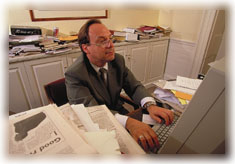 HM: Do you have any concerns about whether students are in fact getting what they ought to from their College experience? Are they missing out because of financial or professional pressures?
HM: Do you have any concerns about whether students are in fact getting what they ought to from their College experience? Are they missing out because of financial or professional pressures?
Lewis: I'll preface almost every answer about Harvard with the same caution: it's very, very dangerous to speak in generalities about the experience of students here. The averages are likely to be averages of widely different values along a considerable range. I'm equally concerned about students trying to pack too much into their Harvard experience, and people who aren't taking advantage of everything there is available. I see students in both situations. And I see a lot of people who seem to be doing it just right.
Of everything that's been done to enhance the experience of undergraduates in the last two or three years, I think nothing is more important than the financial-aid initiative announced last fall, because it was designed to create opportunity for people to spend their time in ways that they choose. One faculty member told me that a student came into her office a week after the announcement and said, "I just figured out that I actually can take that research course I wanted to take. I dropped my job. I want to sign up for that course." Some people will do that, and some people will spend more time on extracurriculars: 80 hours a week at the Crimson, instead of 60. People get a lot out of that as well.
I always worry about people not getting the most out of this place, either because we haven't gotten the information out or it hasn't reached them in the time, place, and manner where they are best able to take advantage of it. I want to look at our publications, our websites, the way we get information to the students.
There is such extraordinary talent here --in mathematics, or acting, or football, or whatever--that people sometimes have a tendency to define themselves around their most notable talent, and thereby miss opportunities to explore things that they haven't actively participated in before. That's too bad. When you go to college, you ought to try on a new identity, try some new experiences. That's one of the great things about the Houses: they're places where you can experiment. You can play softball, or join the House musical, or do lots of other things.
HM: Presumably, somebody is advising them about those opportunities. You recently chaired a committee on academic advising [see "Undergraduate Advising Examined," July-August, page 76].
Lewis: I hate to see people not performing up to their academic potential because they are not really interested in what they are studying. They are studying a subject for the wrong reason: because they think they're supposed to, because their families want them to, because they're worried about making an adequate living. They have the notion their concentration defines them--that they can major in mathematics only if they are going to be a mathematician, and they don't really think they can be a mathematician professionally.
Almost every instance of academic failure at Harvard--I'd even say every instance --has to do with some mismatch between motivation and what people are studying. When people here fail academically, it's always because something has gotten in the way. Not because they can't do the work.
Three years ago, after a lot of discussion with the Ad Board, I proposed and the faculty adopted a raising of College academic standards. We made it slightly easier to fall below the minimum threshold for remaining enrolled. Now, except for first-term freshmen, any academic record that has even a single D is unsatisfactory. Our motivation was to catch people who were having problems at the earliest opportunity, and see that there is at least some kind of advising conversation or systematic attempt to help them adjust. That's been successful: we seem to pick up more students who are having problems earlier on. Of course, it's not a large number in any case.
HM: Have the public-service extracurricular programs settled down since you consolidated their administration under a new manager in your office?
Lewis: I think the public-service programs are healthy. There are lots of new ones as well as the traditional groups, the Phillips Brooks House Association in particular. PBHA is strong. Judith Kidd [assistant dean of Harvard College for public service and director of Phillips Brooks House] has done a great job and made lots of connections to the Houses and to a number of groups. There's getting to be a lot of interest in health-related activities, and in public service on the international scale, with students going abroad to do service projects.
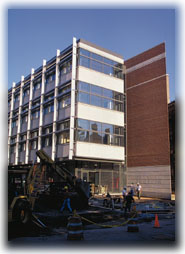 Nearing completion: Maxwell Dworkin,
the division of engineering and applied
sciences' new home for computer science and electrical engineering, which, to the delight of Deans Lewis and Narayanamurti, will help attract high-caliber students. STU ROSNER
Nearing completion: Maxwell Dworkin,
the division of engineering and applied
sciences' new home for computer science and electrical engineering, which, to the delight of Deans Lewis and Narayanamurti, will help attract high-caliber students. STU ROSNER |
Lewis: One of the roles I have played since before I became dean was chairing the Faculty Standing Committee on Athletic Sports, as it is somewhat quaintly known. Because of the significance of the athletic experience--competition and practice and so on--both intercollegiate and intramural, I work not only on policy matters, but also, through the standing committee, with the athletic department on the progress of the overall program. I also sit on the Ivy League Policy Committee. Intercollegiate athletics is a changing world. Our concern is to make sure that the experience of students--and the educational benefit of athletic participation--remains the driving force behind our athletic program and the Ivy League.
I'm very proud to have a stick signed by the entire women's hockey team, the national champions, here in my office. But it's important business, with a lot of issues.
I'm also quite interested in the way undergraduates experience the arts. We've got a very odd set-up, just because of the way the arts have developed. Musical performance, dramatic performance, painting, sculpture, film, photography, dance--they're all organizationally and structurally different. We have a superb music department, but it's not primarily a performing department, so we have choral and orchestral conductors working for the College, rather than for the department. There's no drama department, there's a committee. But there are lots of independent dramatic groups and there's an affiliation with the American Repertory Theatre, whose professionals give some guidance to undergraduates. In film and photography, there's a very fine academic department focused on the undergraduates, with a lot of resources.
After many years at Harvard, four years as dean, I'm beginning to understand how this all works, and how the Office for the Arts relates to all these areas. But how do you explain to a freshman from Kansas, who did all the above while she was in high school, that if she wants to do film, there's a concentration, but not if she wants to do drama? That she can do superb singing, but that won't have anything to do with being a music concentrator, and so on. It's a complicated place.
HM: Speaking of complexity, what difference, symbolically, practically, does the Radcliffe-Harvard merger make for undergraduates?
Lewis: It's a very good thing to have the status of women as full-fledged members of the undergraduate Harvard community clarified. I'm very glad we will no longer have the confusion of the dual admissions and the dual citizenship, which I don't think made a lot of sense to most people.
For Harvard as a whole, I think the plan for the Institute for Advanced Study has a tremendous amount of promise. But I don't think the changes are going to have a lot of impact on undergraduates. The Radcliffe Institute will have human resources on which I'm sure undergraduates will draw, as they draw on people from the Medical School and other places. I am interested in how the merger affects the ways we use the performance spaces that have been used heavily by undergraduates--Agassiz Theatre and the dance studio at Radcliffe [which will not be available for use by undergraduates according to the draft merger terms].
The whole question of the place of women in the College community has been a priority. I've been trying to make sure that women feel they own this place in exactly the same ways men do. We've tried to foster a larger number of fora for bringing successful women into the community, specifically to interact with undergraduates.
One of the things that really took off was the Harvard College Women's Leadership Award, created by a gift from Terrie Fried Bloom ['75, M.B.A. '81] a couple of years ago. We get dozens of nominations for that, and a lot of people put in a lot of effort to advance their candidates. That's a fabulous event.
HM: What are your highest priorities now?
Lewis: One area where Harvard can do a lot better is in advising and in fostering student-faculty interactions. I've actually become a little cautious about using the word "advising," because people attach a very narrow meaning to it. We've discovered there are departments where students can't actually tell you who their adviser is, but are very positive about the support they've received because they've been involved in a lab project where half a dozen students spend every Tuesday afternoon with a faculty member, learning what it means to be a physicist or engineer or whatever.
I chair the advising and counseling committee. Our recent report on academic advising in the departments reflected the range of experience students have. Certain departments have a structure to their undergraduate program that creates an expectation that any new faculty member is going to carry on the tradition of tutorials and guiding undergraduate research and so on. Other departments have a different kind of internal expectation. So I regard this as a good news-bad news story. The bad news is there's lots of room for improvement. The good news is there's nothing intrinsic about the air or water in Cambridge that makes it impossible to have strong support for undergraduates in our academic programs.
HM: What about student calls on the College to enhance undergraduate social life? How about alcohol use, and the final clubs?
Lewis: If we lived in Hanover, New Hampshire, calls on the institution to create a social life would have more credibility. Those people would die to live in Boston or Cambridge and be able to do all the things you can do here for an 85-cent T ride.
The final clubs are in transition. The fact that a good number have closed their doors to nonmembers, at least most of the time, is a recognition that they shouldn't be assuming a role as a place for open parties across campus--that it's dangerous and improper. I am glad of that.
But I also don't exaggerate the significance of those clubs in the general undergraduate experience. There are lots of different Harvards here. And different people find their most important learning and living experiences in different contexts, from the Institute of Politics to the math department lounge. You could ask 10 random students what they do nights and weekends, and you'd get 10 different answers.
I do think there's some opportunity for the Houses to enhance their status as social centers. One of the reasons why I've never had any interest in a Harvard student center--a place to hold big parties, play video games, or eat pizza--is that Harvard, starting back in the '30s, did the unimaginably costly and inefficient thing of having a large college housed in units of a few hundred students each, with separate dining halls, separate common spaces, separate staff, faculty masters, and so on. Those are the social centers. I want to do what needs to be done to strengthen those. My favorite example is the Leverett House '80s Dance. It draws students from all the other Houses. It's a huge success. They make enough money to fund all the House activities for the rest of the year. We could do more of that.
HM: Just as you have been loath to generalize about students, one would be loath to characterize your tenure. But there does seem to be a theme of getting faculty members more involved with undergraduate life. Does being a faculty member make it easier to recruit people, or to assess advising and other aspects of academic life for undergraduates?
Lewis: I hope so. I look for barometers of success of various kinds. One of the things I'm happiest about is that there are a lot of people who want to be House masters. That's a huge difference from certain times in the past.
I think that's a credit to the faculty, but it's a credit to the spirit of the place, too, that faculty see it as an exciting opportunity: to live with students 24 hours a day--and not just students in their own discipline, but the whole cross-section of people from all over the world, from every kind of racial and cultural background.
There's a lot of faculty interest in the advising review as well. I know there have been introspective discussions in the departments about their programs. In my own department, we did a lot of recruiting of newly admitted students this year, because even though we have tremendously strong students, the competition between Harvard and other institutions for the most talented people was harder in computer science and engineering than it was in other academic fields. People were more likely to go to Stanford or Princeton or MIT. Venkatesh Narayanamurti, the dean [see "Harvard Portrait"], really got people organized to recruit, which I thought was a sign of their recognition of how talented the undergraduates are, and how important it is to us to get the very best.
Main Menu ·
Search · Current Issue · Contact · Archives · Centennial · Letters to the Editor · FAQs
![]()